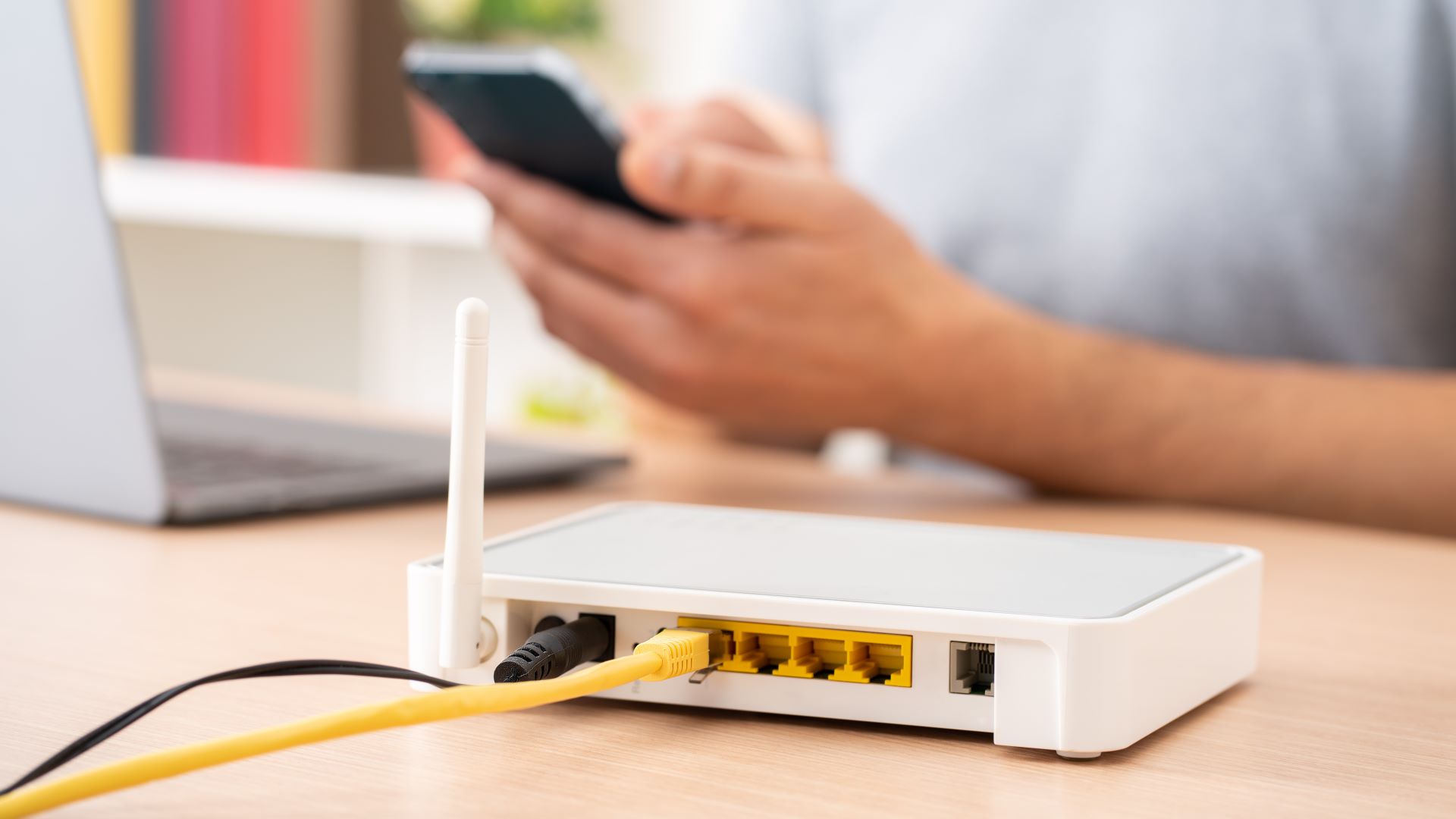Here's why you should consider using a VPN router for travel
Looking for a VPN router for travel? Here's my rundown of everything you should know

Getting online is something many tend to take for granted—especially if you travel to a country with censorship and restrictions in place. Fortunately, the best router VPNs for travel not only keep your privacy secure while you're on your next adventure, but also ensure you'll always have access to essentials (i.e. your messaging apps or online banking).
A VPN router is a portable, small Wi-Fi router with a built-in VPN connection that solves the problem of internet accessibility regardless of your location. We'll get into the nitty gritty of how it works and whether you need one, but for now, let's start at the top.

What is a router VPN?
A router VPN is a small and portable Wi-Fi router that features a built-in VPN connection, eliminating the need for using a separate VPN connection. You can also think about them as virtual private networks installed directly on a router instead of a given device, such as your PC, laptop, or smartphone.
I should mention that using a router VPN isn't the most straightforward or usual way to set up the software. However, it is the most efficient way to protect every single device you're using. Why? Because it secures your entire Wi-Fi connection at its source, as opposed to securing it on a per-device basis.
Using a router VPN means that you can use the best VPN not only on your phone or PC, but also a myriad of other devices you may be using that don't natively support VPN connections, such as Roku, PlayStations (and even smart lights!)
The trade-off (there's gotta be one, as always) comes in the form of the fact that setting up a router VPN for travel can be more complex compared to simply installing an app. On the upside, more and more providers are offering dedicated software that is intuitive to install and use.
At Tom's Guide, we've recorded more than 3,000 hours of testing (more precisely, 2,800 tests and 28,000 speed tests) to ensure that the best VPNs actually deliver on their promises. At the moment, ExpressVPN is the pack alpha in terms of travel VPNs, but Private Internet Access and Surfshark continuously challenge its supremacy (mostly thanks to being more budget-friendly).
Sign up to get the BEST of Tom's Guide direct to your inbox.
Get instant access to breaking news, the hottest reviews, great deals and helpful tips.
How does a router VPN work?
To explain how a router VPN for travel works, let's break things down.
A typical VPN connection has two sides: one is a VPN server, and the other is a VPN client. On the one hand, you can configure your home or work router as a VPN server. This means you'll need to install VPN client software on every device you wish to protect, allowing each one to establish a VPN connection between it and the router. Doing this will encrypt the data transmitted between your router and devices in a private tunnel, and keep them safe.
On the other hand, you can also configure your router not as a VPN server, but as a VPN client instead. Doing so will ensure that all of your devices that are connected to your router will enjoy the VPN service by default. In other words, you won't need to install VPN software on each device separately.
Now we come to the all-important question of the difference between a VPN software and a VPN router. You can think of a VPN software as being installed and running on a single device. Be it a smartphone, laptop, or desktop PC, it only protects the device on which it's installed.
However, a VPN travel router is a Wi-Fi router that can protect all of the devices within the connected network. In other words, you can use a single VPN subscription and protect phones, computers, and other devices all at once without having to install VPN software on each device separately.
But, why use a travel VPN in the first place? Because it helps you safeguard what you do online—including your personal information—from the prying eyes of foreign governments, ISPs, and hackers (also, here's a list of our top picks for best travel VPN in 2024).
Then there's the added (main, for some) benefit of keeping in touch with your home country's content. A travel VPN is indispensable because different countries impose geo-restrictions on various streaming services. Additionally, some streaming platforms also differentiate between regions (due to legal circumstances).
For instance, Netflix has different libraries in Japan, India, the US, UK, and so on. If a person is traveling to Japan from the US, a travel VPN will grant them access to the US Netflix library by deceiving the service to make it appear they are still in the US.

Should I get a router VPN for travel?
It can be advantageous to use a router VPN for travel in certain situations, but there are some drawbacks as well. Depending what you're looking for, here are some considerations.
Pros:
- Simultaneous, all-encompassing protection. You'll have automatic protection on all your devices that are connected to the router VPN, without having to install and run separate software on each device individually.
- Round-the-clock security. With a router VPN, you can have active protection all the time, thus eliminating the risk of going online without the protection of a VPN by accident.
- Avoiding using unfamiliar Wi-Fi networks. A router VPN eliminates the risks of having to connect to an unfamiliar Wi-Fi address, public or private, when traveling. Additionally, it comes with the added convenience of not having to download and install a VPN software while in a foreign country (which may not allow it in the first place).
Cons:
- Limited spatial protection. Even if you do bring a router VPN with you, it may only be usable where you're staying. In other words, any time you leave your accommodation, you'll be forced to use a dedicated VPN software for your smartphone or laptop.
- Lower speed risk. You'll likely face slow connection speeds if you've got lots of devices connecting through your router VPN at once, and maximizing its resources

Bonus: The history of router VPNs
The year was 1996. After toiling away for many-a-moon, a Microsoft engineer named Gurdeep Singh-Pall successfully developed the Point-to-Point Tunneling (PPT) protocol. This technology ultimately paved the way for the subsequent global adoption of virtual private network (VPN) services, which encrypt your internet traffic and protect your online identity.
The following year, in 1997, another breakthrough took place: the birth of the first ever Wi-Fi router. Its name was the Aironet 4800, and it was a wireless access point that used the 802.11 standards to provide wireless connectivity to devices. Before then, most users were "stuck" with using individual, physical cables to connect to the internet.
Looking back, these events occurred when the world was excitedly looking forward to welcoming the new millennium. Those of us (like myself) who lived through this period remember the thrill that these technological advancements brought, and the riveting, tingling sensation of anticipating even more exciting future breakthroughs. What a time to be alive!
- Olivia PowellTech Software Commissioning Editor
